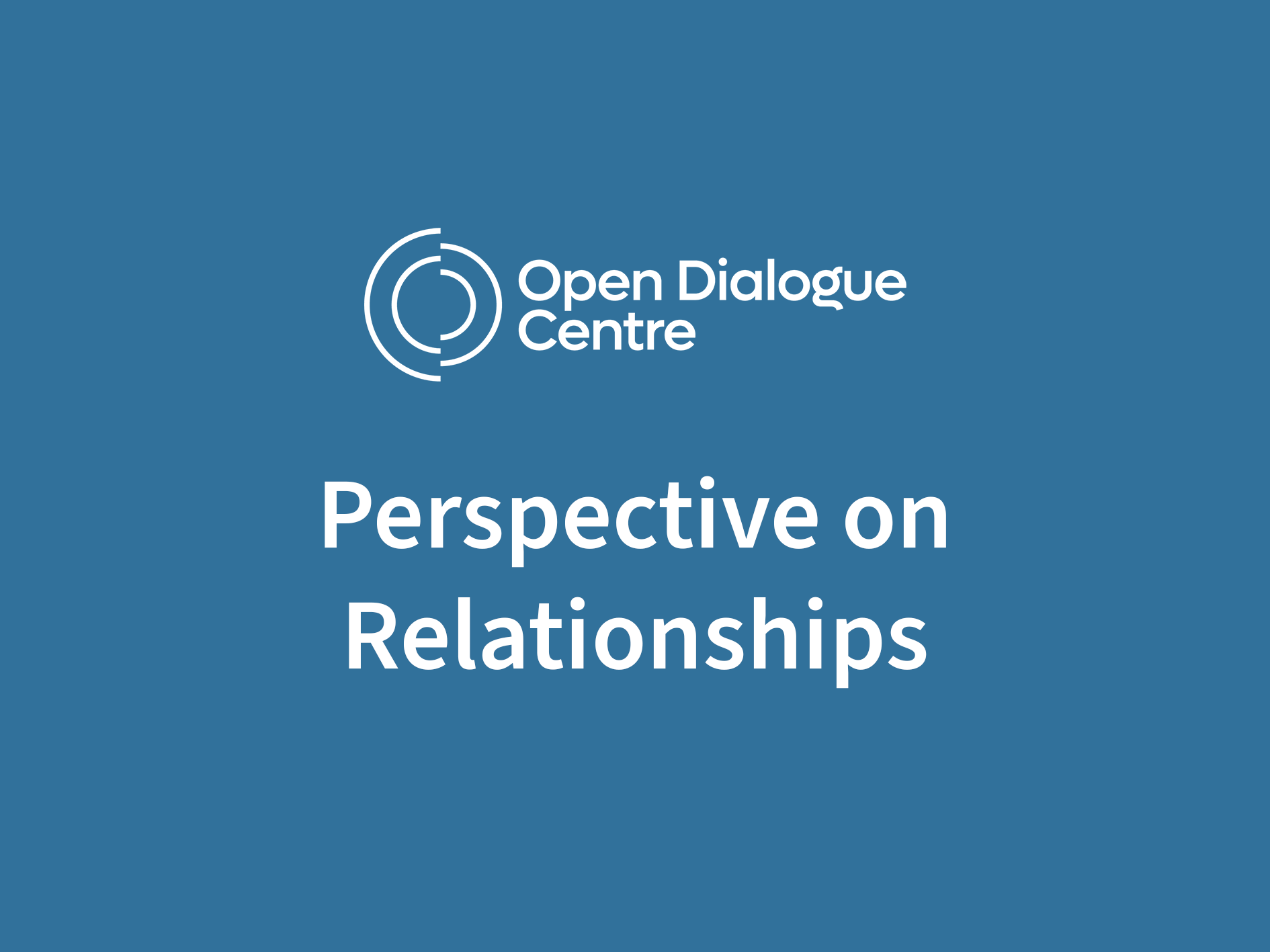Perspective on Relationships
As humans are social creatures, relationships are fundamental to our mental and emotional health and wellbeing.

Research tells us that people’s experience of relationships impacts – both positively and negatively – on how they develop, are cared for and recover from crises or challenging life events. There is clear evidence that creating networks of support is more efficient, cost effective and can produce strong outcomes in health and wellbeing – yet our systems of care are primarily set up to address the needs of individuals and provide individualised interventions.
In many Australian health services and programs, involving a person’s chosen social network or family in their support or recovery journey is often seen to be an optional add-on when addressing mental ill-health. Too often, family and loved ones are excluded from the engagement with services when they could be in a position to provide valuable perspectives or assistance.
People without strong relationships have reportedly higher levels of mental ill-health. Not only that, they can also experience increased instances of physical ill-health. Distant and conflictual relationships not only damage the mental health of an individual, but can also affect the mental wellbeing of a person’s support network.
As relationships matter so much to who we are and how we live, exploring and resolving conflicts – and the opportunity to recreate missed connections – could be invaluable in terms of effective mental health outcomes.
Suicide Prevention Australia found that Australians believe that family and relationships will be one of the biggest factors affecting suicide rates over the next 10 years.
In times of crisis, strong relationships can promote engagement with a mental health service, improve trust between all members of the network and the service, and support people in knowing more about what works and how best to proceed together. It can also provide visibility and assistance to the person’s network, whose own mental health could be compromised due to increased responsibilities.
Governments, both internationally and within Australia, are starting to acknowledge the importance of relationships in mental wellbeing – for example, the Royal Commission into Victoria’s Mental Health System suggests that “involving families, carers and supporters in care and recovery will become standard practice for all services, and an expectation from the government when commissioning providers.” However, there is still a long way to go, as the majority of services do not actively or consistently include family members or a support network.
Elisabeth Shaw, CEO of Relationships Australia NSW says, “Warm relationships are the number one investment you can make for positive mental health and wellbeing outcomes. Relationships Australia NSW has partnered with the Open Dialogue Centre because we really see that relationships are an untapped resource in terms of successful outcomes, and we know they are often a critical piece of the puzzle for those struggling with mental health issues…it makes sense for people to be seen in the context in which they live and work.”
Open Dialogue is very different to the traditional one-to-one approach with a therapist and client. It’s an approach that engages with the individuals social network, which not only includes parents, siblings, or extended family, but also friends, professionals or other supporters that could be fundamental to how change occurs.

